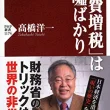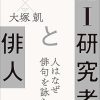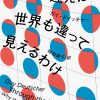Nikita Stepanov からの質問
公開日:
:
最終更新日:2023/05/30
観光学評論等
Nikita Stepanov (Saint-Petersburg State Polytechnic University) sent you a message.
Thank you for all the work that you put here, it was really helpful for me to understand the phenomenon of Japanese tourism and travelling.
I am currently preparing a case study for my school of amazing success that Japan has reached. And although there is a lot of different information on all possible matters concerning tourism development I am struggling with finding some basics (which probably has a lot to do with me not knowing Japanese language). So I am wondering if you can be so kind and answer a couple of my questions on this matter:
1 What laws were implemented in Japan to increase inbound tourism and when? (aside of visa relaxations. there probably should be something more)
In 1930, Board of Tourist Industry was created in the Ministry of Railways for the purpose of acquiring foreign currency for procuring war expenditure. The term Tourism is not used easily, the term Tourist is used. At the same time a trade bureau was created at the Ministry of Commerce and Industry. Before and after this, the National Treasure Conservation Law in 1929 and the National Park Law in 1931 were enacted. This law is also aimed at acquiring foreign currency.
After the defeat of World War II, the International Tourism Hotel Development Law was enacted in 1949. The hotel necessary for attracting foreign guests was occupied by the occupation forces, so we had to newly establish accommodation facilities. It is a kind of accommodation facility rating law. In 1948 the Accommodation Act and the Hot Spring Act were enacted. In 1949, the interpreting guidance business law was enacted. In 1952 when the occupation ended, a traveling business law was established for the purpose of protecting foreign tourists. The National Treasure Conservation Law aimed at acquiring foreign currencies was revised to Cultural Property Protection Act. The National Park Law was revised to the Natural Park Law. The basic system of inbound tourism relations is almost enacted at this time.
Many tourism scholars and critics in Japan have described that inbound policy has not been done in Japan, but they were lacking in study. I think that you can understand from these facts that in Japan, only inbound tourism policy has been done since 1930.
2. When was the tax free system implemented in Japan ?
The treatment of tourism taxes must be divided into those for Japanese and those for foreigners.
Regarding taxes on sightseeing for Japanese people, luxury taxes have been applied from the recognition that sightseeing is luxurious. Prior to the war, a special tax was imposed on transportation expenses, accommodation, food and drinking expenses, theaters, etc. in order to secure war costs with China. The luxury tax continued consistently after the war, and continued until 1989 when the general consumption tax law was enacted.
There was no taxation on special tourism to foreigners. On the contrary, a tax reduction was done at the Olympic Games opening. Tax exemption for consumption tax for foreigners is handled in the same way as other countries. Rather, as the number of Chinese tourists increased, local governments’ accommodation taxes and country departure taxes are created.
3. Was there a report on what was done regarding the previous tourism strategy? (before 2015)
I do not know anything other than what I wrote on my HP. If you search on Google there might be more. There are Japanese researchers who call themselves researching tourism policy. However, I am the only researcher who experienced tourism policy at the national level.The reason is that other researchers do not clearly recognize even policy definitions.
4. Is there a cost breakdown on tourism strategy implementation ? (for example “spent 1 billion on hotels, 3 billion on marketing, etc” )
Unanswerable.
Because I think that tourism definition is impossible. For example, if VFR is not tourism, it can not calculate. Conversely, if the VFR is tourism, everything that people move is targeted. That’s why I am advocating Human logistics.
5. I know there was something done with airlines to increase the number of flights to Japan. What was that exactly?
The international air transport volume has definitely increased. Japan is an island country, there is no international land movement. Many air transport activities are also carried out by foreign airlines. Because foreigners are the center. The power of LCC is great.
6. Were there any special conditions for private investors in tourism infrastructure in Japan? Some discounts, tax holidays or anything like this?
In Japan, basic public investment such as airports, harbors, railroads, etc. are being developed. Regarding private investment such as hotels, there is no special system limited to that. In the case of implementing the Olympic Games or opening a casino, I think that it will take advantage of investment incentives, but it will not necessarily be limited to sightseeing.
Finally, I think that due to years of observation on sightseeing, the reasons for the rapid increase in visitors to Japan, I think that it is in the economic development of countries around the Far East, especially China. Conversely Japanese income has not increased more than 20 years. The income of Tokyo residents is high, but the income of other areas is not much different from the income of the Far East. For example, compare Okinawa with Hawaii. The population is the same 1.4 million people. The number of visitors from outside the island is the same as about 9 million. But for income, Okinawa is half of Hawaii ($ 50,000). Therefore, it is cheap for traveling in Japan.
The Abe administration does not have outstanding results as economic policy. There are only increases in the number of foreign customers to Japan. Therefore, the government emphasizes this greatly. Many Japanese also want to think that Japanese culture has been evaluated abroad. Recently, some people say foreign tourists do not have to come to Japan. However, even if the number of foreign tourists increases, the income of residents other than Tokyo is still sluggish, I believe that as a tourism policy, it can not be considered successful. I also do not think that other Japanese tourism researchers are aware of this too much.
I know some of these questions are not exactly matches your field of study but I will really appreciate if you might bless me with some of the information on any of these matters?
Best regards,
Nikita
関連記事
-

-
『仕事の中の曖昧な不安』玄田有史著 2001年発行
書評ではなく、経歴に関心がいってしまった。学習院大学教授から東京大学社研准教授に就任とあることに目
-

-
マルティニーク生まれのクレオール。 ついでに字句「伝統」が使われる始めたのは昭和初期からということ
北澤憲昭の『<列島>の絵画』を読み、日本画がクレオールのようだというたとえ話は、私の意見に近く、理解
-

-
加太宏邦の「観光概念の再構成」法政大学 法政志林54巻4号2008年3月 を読んで
加太宏邦の「観光概念の再構成」法政大学 法政志林54巻4号2008年3月の存在をうかつにも最近まで知
-

-
「観光をめぐる地殻変動」-観光立国政策と観光学ー石森秀三 を読んで
学士會会報2016年ⅳに石森秀三氏の表題記事が出ていた。論調はいつものとおりであり驚かなかったが、感
-

-
『眼の神殿 「美術」受容史ノート』北澤憲昭著 ブリュッケ2010年 読書メモ
標記図書の存在を知りさっそく図書館から借りてきて拾い読みした。 観光資源の文化資源、自然資源という
-

-
『地方創生のための構造改革』第3章観光政策 論点2「日本における民泊規制緩和に向けた議論」(富川久美子)の記述の抱える問題点
博士論文審査でお世話になった溝尾立教大学観光学部名誉教授から標記の著作物を送付いただいた。NIRAか
-

-
字句「美術」「芸術」「日本画」の誕生 観光資源の同じく新しい概念である。
日本語の「美術」は「芸術即ち、『後漢書』5巻孝安帝紀の永初4年(110年)2月の五経博士の劉珍及によ
-

-
『戦後経済史は嘘ばかり』高橋洋一
城山三郎の著作「官僚たちの夏」に代表される高度経済成長期の通産省に代表される霞が関の役割の神
-

-
『コンゴ共和国 マルミミゾウとホタルの行き交う森から 』西原智昭 現代書館
西原智昭氏の著書を読んだ。氏の経歴のHP http://www.arsvi.com/w/nt10.h
-

-
観光資源としての「隠れキリシタン」 五体投地、カーバ神殿、アーミッシュとの比較
「長崎と天草地方の潜伏キリシタン関連遺産」が世界遺産登録された。江戸時代の禁教期にひそかに信仰を続け


